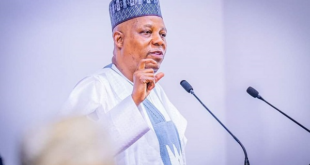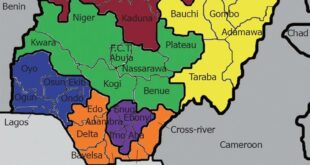By Rukayat Moisemhe
The Manufacturers Association of Nigeria (MAN) has projected a mixed outcome on the impact of the floating exchange rate regime on the Nigerian economy.
Its Director General, Mr Segun Ajayi-Kadir, said this in an interview with the News Agency of Nigeria (NAN) on Thursday in Lagos.
NAN reports that a floating exchange rate is a currency management system where the value of a currency, such as the Naira, is determined by market forces.
Factors like commodity prices, interest rates, capital flows, and level of trade flow determine the exchange rate under the floating regime.
Ajayi-Kadir said that several economies had practised floating exchange rates, including the United States of America, Canada, Australia, Japan, United Kingdom and Angola and Egypt as case points in Africa.
He, however, noted that the outcome of the policy was often mixed as observed in these countries and the impact on the Nigerian economy at large would be different.
He said that on the good side, the development would lead to the deceleration of foreign exchange scarcity as currency arbitrage activities would drop.
The MAN DG added that the regime would engender competitiveness of Nigeria’s export and lead to improved market efficiency for effective foreign exchange access and rise in capital flows.
“On the challenging side, we expect increase import costs and currency depreciation may reduce import flows, which is bad for manufacturers that depend on raw materials not locally available.
“Also, we foresee economic uncertainties and exchange rate volatility due to the difficulty in predicting predict future exchange rate movements and planning accordingly.
“Also, floating exchange rates make economies more susceptible to external shocks,” he said.
Ajayi-Kadir, however, said that floating the Naira remains an important step towards resolving the crisis rocking Nigeria’s foreign exchange market as the official exchange rate was almost at par with the market-determined rate.
“We are hopeful that the floating of the Naira will restore sanity in Nigeria’s foreign market and advise members to see this new development as a long-awaited opportunity to soften the lingering challenges of the foreign exchange crisis.
“Given a floating system, we are optimistic that the official and parallel market rates will eventually converge and will create headroom for investors to seamlessly have access at a competitive rate,” he said.
(NAN)
Subscribe to the Advocate News letter and receive news updates daily in your inbox.
 Advocate.ng Latest news update on politics, entertainment, sport and more
Advocate.ng Latest news update on politics, entertainment, sport and more




